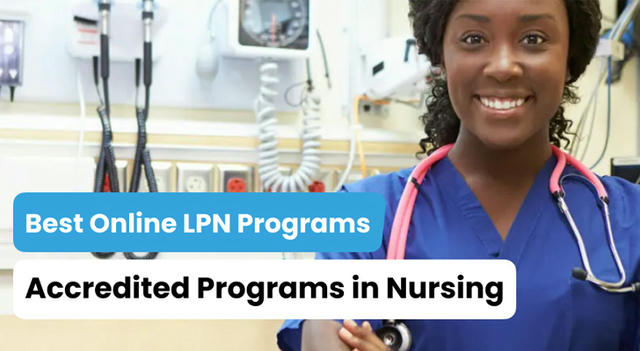The healthcare sector continually seeks skilled professionals to provide quality patient care. Among the essential roles is that of the Licensed Practical Nurse (LPN)—a vital member of the nursing team delivering hands-on medical and personal support to patients in various settings.
LPN training programs equip learners with the foundational knowledge and practical skills needed to assist registered nurses and physicians, ensuring patients receive safe, compassionate, and efficient care.

What Is an LPN?
An LPN is a licensed nursing professional who provides basic nursing care under the supervision of registered nurses (RNs) and doctors. The role bridges the gap between unlicensed care aides and registered nurses, performing clinical tasks that require specialized training.
Typical responsibilities include:
Monitoring vital signs such as blood pressure and temperature
Administering prescribed medications and injections
Assisting patients with daily activities like bathing, dressing, and mobility
Collecting samples for lab tests
Observing and reporting changes in patient conditions
Providing wound care and basic treatments
Supporting patients emotionally and educating them on care routines
LPNs work in hospitals, nursing homes, clinics, home care, and rehabilitation centers.
Why Choose LPN Training?
LPN training offers a relatively fast and practical route into nursing, combining classroom learning with clinical experience. This path suits individuals who wish to:
Begin a healthcare career in a hands-on role without lengthy education commitments
Gain practical skills that are in high demand across healthcare settings
Build a foundation for further nursing education, such as becoming a registered nurse
Work in diverse environments serving different patient populations
The growing demand for healthcare services ensures that qualified LPNs continue to have employment opportunities.
Curriculum and Skills Development
LPN programs typically last between 12 to 18 months and cover key topics such as:
- Anatomy and Physiology
Understanding the structure and function of the human body to recognize health and illness.
- Medical-Surgical Nursing
Basics of nursing care for patients undergoing surgery or with chronic conditions.
- Pharmacology
Safe administration and management of medications.
- Patient Care Techniques
Hygiene assistance, mobility support, feeding, and basic life support skills.
- Infection Control
Preventing and managing infections through proper hygiene and protocols.
- Communication and Ethics
Effective communication with patients, families, and healthcare teams, along with ethical standards in nursing.
- Clinical Practice
Hands-on experience in healthcare facilities, applying learned skills under supervision.
Who Should Consider LPN Training?
Ideal candidates include:
Those seeking practical and rewarding careers in healthcare
Individuals looking for an accessible entry into nursing with shorter training than registered nurses
People interested in patient interaction and care provision
Healthcare workers aiming to upgrade their qualifications
Individuals planning to advance into higher nursing roles in the future
LPN training also supports career changers and those returning to the workforce.
Employment Settings and Opportunities
Licensed Practical Nurses find roles in a variety of care environments:
Hospitals and surgical centers
Long-term care facilities and nursing homes
Community health clinics
Home health care agencies
Rehabilitation centers and hospices
The versatility of the LPN role allows for flexible work hours, including full-time, part-time, and shift options.
Challenges in the Role and How Training Helps
Physical Demands
The job often requires long hours on one’s feet and assisting patients with mobility. Training includes ergonomics and safe patient handling.
Emotional Resilience
Caring for sick or elderly patients can be emotionally challenging. Education emphasizes communication and coping strategies.
Maintaining Up-to-Date Knowledge
Healthcare evolves rapidly; LPN training instills a foundation for lifelong learning and adaptability.
Precision and Attention to Detail
Administering medications and monitoring patients require accuracy and focus, which are reinforced during training.
Career Progression
Completion of an LPN program opens doors to entry-level nursing positions, with the option to further advance by:
Pursuing Registered Nurse (RN) qualifications through bridging programs
Specializing in areas such as gerontology, pediatrics, or wound care
Transitioning into supervisory or care coordination roles
The practical experience gained as an LPN provides a solid stepping stone for future healthcare careers.
Conclusion
Licensed Practical Nurse training provides an effective pathway to enter the healthcare workforce with essential skills and knowledge. The role of an LPN is crucial in supporting patients and healthcare teams, offering direct care that impacts lives daily.
For those seeking a hands-on, meaningful career with flexibility and growth potential, LPN education lays a strong foundation. With comprehensive training and clinical experience, graduates are well-prepared to meet the demands of modern healthcare environments.



